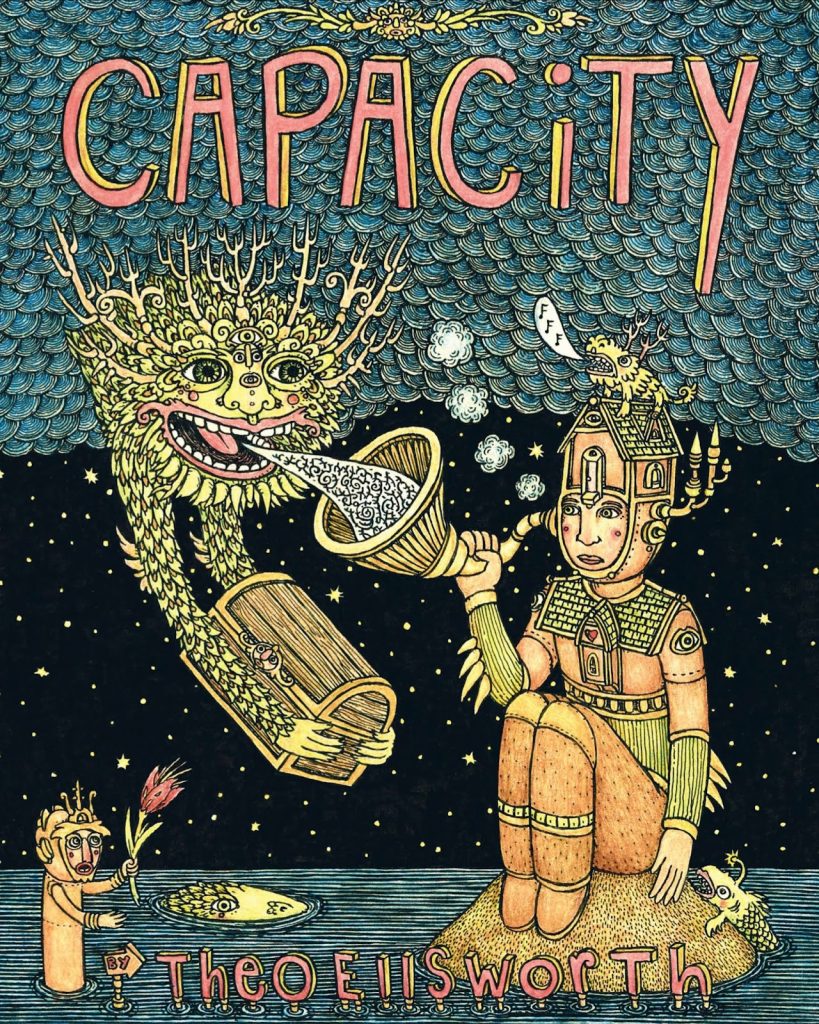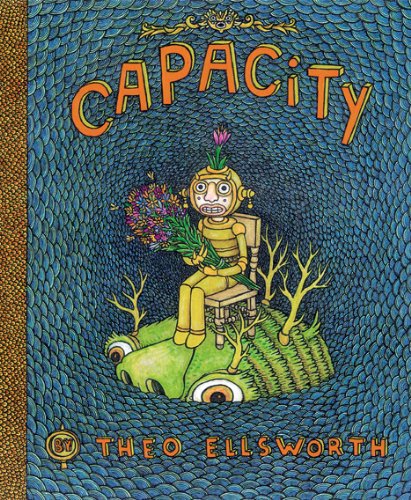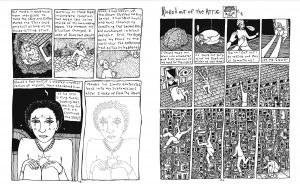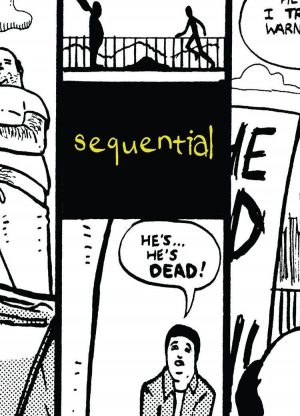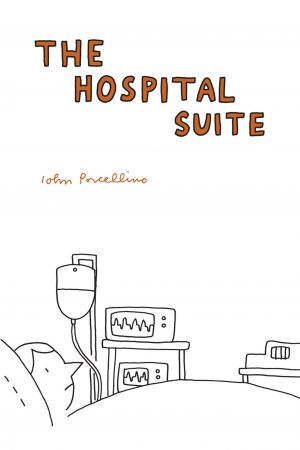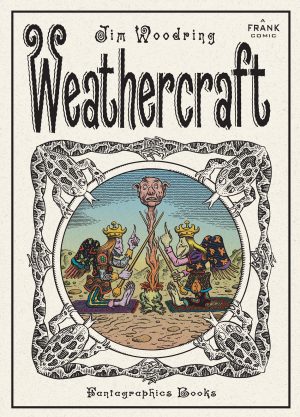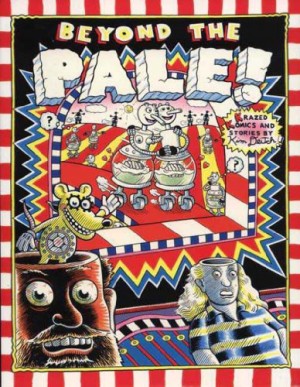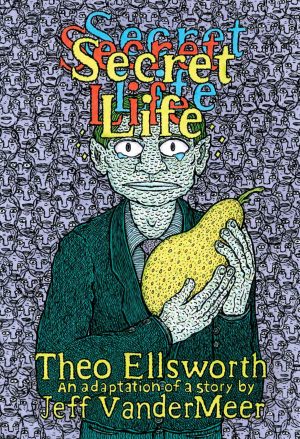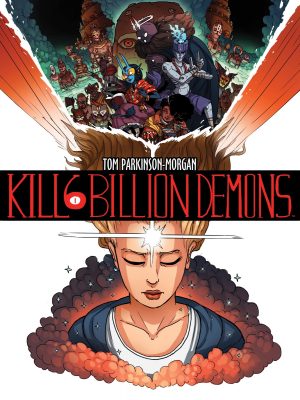Review by Frank Plowright
“Investigatory offerings in black ink for your consideration” is how Theo Ellsworth introduces the remarkable Capacity, which begins with some wild flowerings of visual intensity before becoming an intimate confession about the author’s communication skills. His mind bursts with ideas, but each leading to another, a never-ending plummet down a chute of creativity where the fear is that each story becomes so complicated it can never be told. These musings are accompanied by startling complex illustrations, a merger of Little Nemo’s dreams as if interpreted not by Winsor McCay, but by Kim Deitch or Jim Woodring, although resolutely two-dimensional.
This extensive introduction services the reprinting of the seven Capacity minicomics Ellsworth produced, and it prompts a remarkable recontextualisation. Stories that just seemed passing whimsy, although often amusing and imaginatively drawn, are revealed to have far greater than usual connection between a creator and his work. Some are now decipherable, some less so, but all have a greater resonance for the introduction. Ellsworth commenting connects them to bigger ideas impacting on his personal circumstances at the time of creation, these detailed between the reprinted issues. The later minicomics are individually communicative, the sixth issue’s musing on thoughts not far removed from the surrounding material, being insightful and poetic, and gloriously illustrated. ‘Witch Medicine’ in the seventh Capacity can be taken as surreal fantasy, or a representation of Ellsworth’s life sleeping in a car, and the redemption of a new girlfriend who studies Chinese medicine.
The later art is almost obsessive, densely crosshatched whether acknowledging the fantasies of Hieronymus Bosch or urban settings. This all seems to be naturally produced. Indeed early on, perhaps to forestall speculation, there’s a metaphorical meeting for one of Ellsworth’s visual stand-ins where he’s offered glasses supplying enhanced experience, which he rejects. This is in contrast to the equally imaginative, but simpler illustrations from the minicomics, although these grow in complexity throughout the run.
In detailing Ellsworth’s creative struggles there’s a self-awareness to Capacity, and at well over three hundred pages the episodic format is essential to prevent overwhelming the reader. You, the reader, by the way, are represented, Ellsworth relating much of his story to a small abducted figure rendered speechless when confronted with his lengthy introductory explanation before diving into the minicomics.
When these are completed Ellsworth details the torments of his childhood, when his imagination trumped reality to a far greater degree, leading to the demonisation of an inner voice plaguing him to this day. One imaginative situation tumbles into another, some folding back on each other. It would be a quickfire mind almost free-associating were it not for the time required for the drawing, and leads to an appropriate ending, both mind-blowing and funny.
The fantasy trappings and discursive nature mean Capacity isn’t going to have universal appeal, but Ellsworth’s prodigious illustrations should connect universally on some level. He’s a unique talent, which alone should be cherished, and who wouldn’t want their tea blessed by an authentic tea gnome? It’s optional, but a promise made to every reader.
